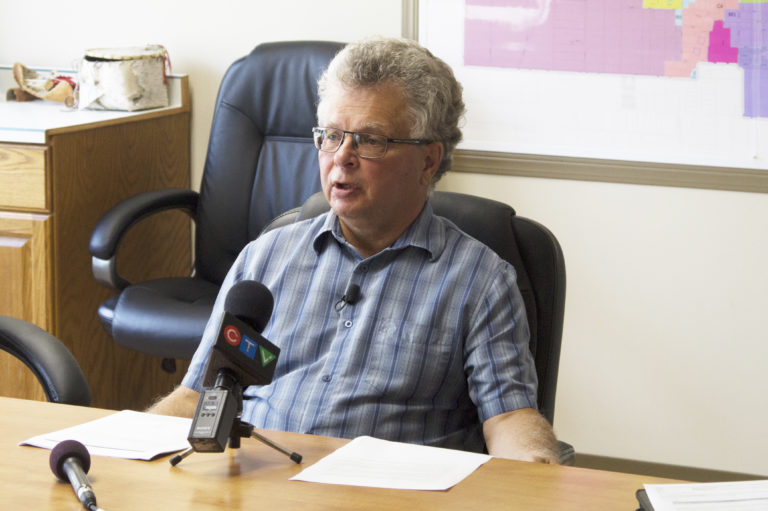
As Canada starts to slowly recover from the COVID pandemic, housing and poverty experts are worried many cities will see a jump in homelessness.
A recent study conducted by a Columbia University professor estimates that homelessness could grow by as much as 45 per cent in the United States due to a COVID-induced economic downturn. Experts in Canada say there is no guarantee the homeless population will grow as quickly here as it does in the U.S., but they have no doubt it’s going to happen.
“I think we certainly could see an increase in Canada, but it really comes down to how will the subsidies continue (and) how quickly will the economy recover?” said Tim Richter, the president and CEO of the Canadian Alliance to End Homelessness (CAEH). “What will happen when provincial governments lift eviction moratoriums? We don’t really know.”
Richter spoke to a House of Commons committee on June 1, outlining his concerns that the COVID-19 pandemic could lead to a spike in homelessness across Canada. The economic impact of closing businesses and capping public gatherings has hit low-income and homeless residents the hardest, he explained. Without continued government support, he’s worried many residents who lost their jobs will also lose their homes too.
The CAEH has developed a six-point recovery plan to help prevent a surge in homelessness. The plan calls for expanded federal investment in the Canada Housing Benefit, a national guaranteed minimum income, the construction of 300,000 new permanently affordable and supportive housing units over the next 10 years, and a limit on the ability of Real Estate Income Trusts to buy ‘distressed’ rental housing assets. It also calls for the creation of an Urban and Rural Indigenous Housing and Homelessness Strategy developed and implemented by Indigenous peoples.
Richter said that last point will be key for cities like Prince Albert, since many Indigenous residents will not have access current housing support programs offered by their home communities. He added that all levels of government will have to work quickly before vulnerable people start falling through the cracks.
“We’ve got a significant housing deficit in Canada,” he said. “We need to protect what we have to make sure the hole we’re in doesn’t get any bigger.”
Housing experts in Prince Albert are also worried COVID-19 will cause a spike in homelessness, and inhibit the ability of all governments to respond to it.
River Bank Development Corporation manager Brian Howell said government are increasing their debt to keep vital services open, but he worries that will have a negative affect down the line when those bills come due.
“For sure, there’s going to be an economic downturn from the pandemic, and there’s been so much government spending that at some point the two are going to come together,” Howell said. “There’s a good possibility, in my opinion, that there may be less money available for low-income families because of the need to pay off all of this debt. We are concerned for sure.”
Prince Albert Community Housing general manager Linda Boyer said she’s worried residents who don’t get their jobs back won’t be able to make rent payments. There are plenty of supports now, she explained, but like the CAEH, she’s worried about what will happen after the pandemic ends, and emergency measures like the CERB or eviction protections go away.
“If people don’t get their jobs back, then yes, we’re going to see a lot of people lose their homes because they can’t afford it,” she explained. “I don’t know what the answer is, but there’s still rent to pay, there’s utilities to pay, there’s food to buy.”
Boyer said she’d like to see the government temporarily pay the rent for any person who lost their job due to COVID. Howell, meanwhile, wants to see emergency programs extended, even after the pandemic ends.
Both admit there’s a lot of uncertainty going forward, and governments need to focus on the most vulnerable members of society, while remaining flexible with their policies.
“Governments need to really develop an upward looking approach to rebuilding, rather than a downward looking ‘we’ve got to balance the budget and God help anyone who gets in our way’ approach,” Howell said. “That’s what I’m hoping for, but we’ll see what happens.”
“I believe there will be units out there to rent, but (low-income residents) won’t be able to afford them if they don’t have their jobs,” Boyer added. “Like I said, I don’t know what the answer is, but I hope they can come up with something.”
Municipal and provincial governments have taken a number of steps to compliment federal programs like the Canada Emergency Response Benefit (CERB).
In March, the Government of Saskatchewan temporarily suspended all eviction hearings as a result of COVID-19. However, tenants who are unable to pay their rent during the state of emergency are still expected to pay it after the pandemic. In Prince Albert, city council voted to give landlords the opportunity to defer property tax payments until the Fall.
In April, the Saskatchewan Landlords Association (SKLA) reported that 27 per cent of all tenants hadn’t paid their rent. Only three per cent do not pay their rent in a normal month.
